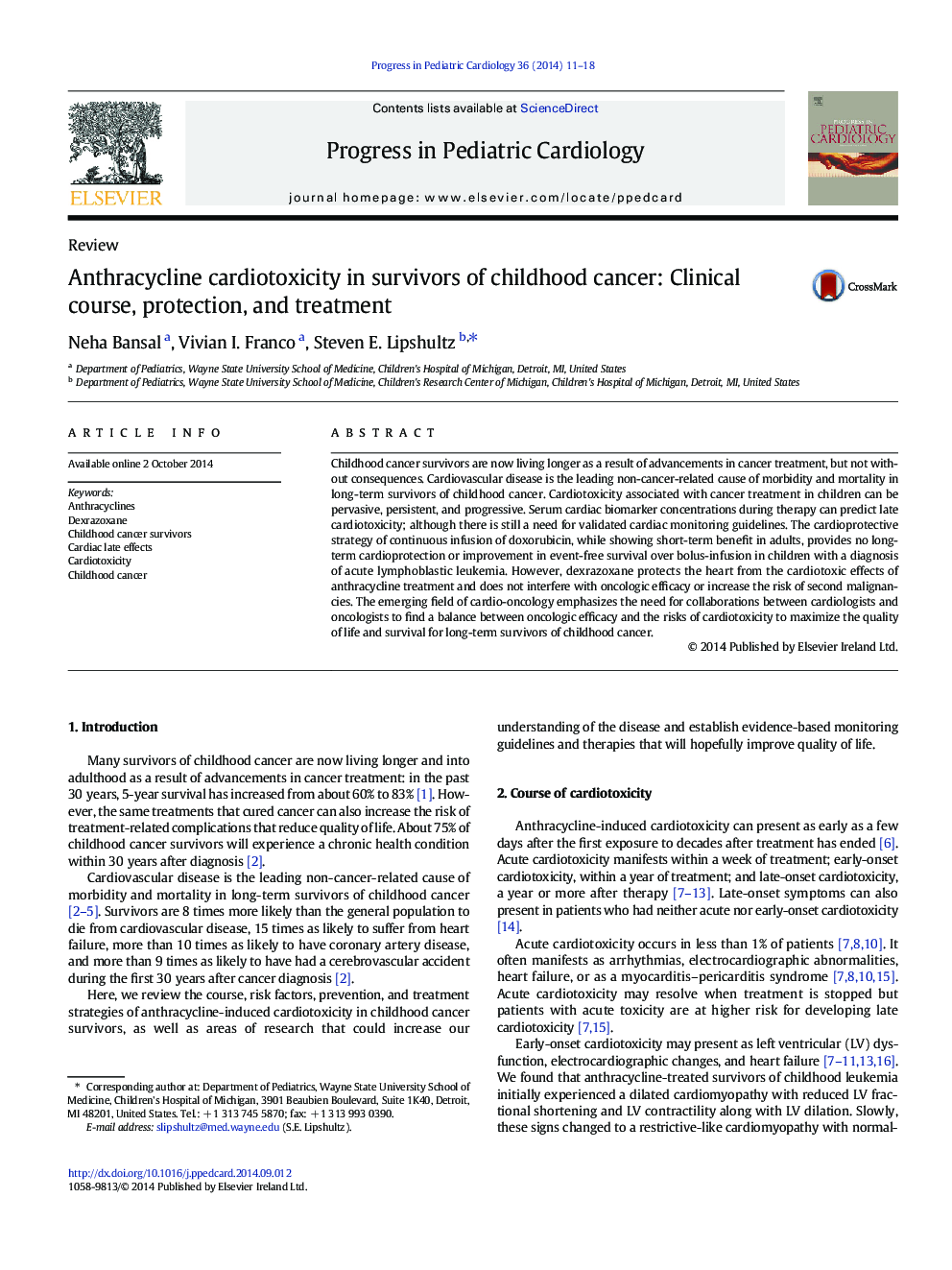| Article ID | Journal | Published Year | Pages | File Type |
|---|---|---|---|---|
| 5997020 | Progress in Pediatric Cardiology | 2014 | 8 Pages |
Childhood cancer survivors are now living longer as a result of advancements in cancer treatment, but not without consequences. Cardiovascular disease is the leading non-cancer-related cause of morbidity and mortality in long-term survivors of childhood cancer. Cardiotoxicity associated with cancer treatment in children can be pervasive, persistent, and progressive. Serum cardiac biomarker concentrations during therapy can predict late cardiotoxicity; although there is still a need for validated cardiac monitoring guidelines. The cardioprotective strategy of continuous infusion of doxorubicin, while showing short-term benefit in adults, provides no long-term cardioprotection or improvement in event-free survival over bolus-infusion in children with a diagnosis of acute lymphoblastic leukemia. However, dexrazoxane protects the heart from the cardiotoxic effects of anthracycline treatment and does not interfere with oncologic efficacy or increase the risk of second malignancies. The emerging field of cardio-oncology emphasizes the need for collaborations between cardiologists and oncologists to find a balance between oncologic efficacy and the risks of cardiotoxicity to maximize the quality of life and survival for long-term survivors of childhood cancer.
